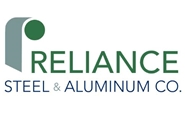Market Segment

July 22, 2021
Reliance Sees Record Profits in Q2 Despite Supply Constraints
Written by David Schollaert
Reliance Steel & Aluminum Co.’s sales soared to a record of $3.42 billion in the second quarter on shipments of 1.424 million tons. Sales were up 20.4% from the previous quarter and up 69.3% from the same period last year. The record-setting results for the largest service center in North America were due primarily to the historic strength in metals pricing, the company said today in its quarterly earnings report.
Reliance’s second-quarter shipments rose by just 1.0% over Q1, but were up 17.5% year on year. The company reported strong demand trends in most of its end markets despite the small uptick quarter on quarter, adding that underlying demand is stronger than its Q2 shipments reflect due to factors hindering economic activity such as metal supply constraints, labor shortages and other supply-chain disruptions.
“During the second quarter we continued to experience considerable strength in metals pricing, led by multiple mill price increases for carbon and stainless-steel products in particular,” said Jim Hoffman, Reliance CEO. “The favorable pricing environment along with continued strong underlying demand in the majority of the end markets we serve drove record quarterly net sales of $3.42 billion.”
Hoffman touted the company’s business model, “which is strategically highly diversified in terms of our products and end markets” allowing it to excel in the current market with constricted supplies. Reliance focuses on small order sizes with quick turnaround, and has strong, long-standing relationships with the domestic mills, he said.
Shipments to nonresidential construction – Reliance’s largest end market – have returned to pre-pandemic levels. The service center is bullish on downstream demand, particularly commercial construction, based on healthy backlogs and solid quoting activity. Likewise, demand from the agricultural, construction equipment and manufacturing sectors improved significantly in the second quarter. Demand in the energy market also improved in Q2, but at a more modest rate. The pace of growth in oil and gas is expected to be gradual, said company executives.
The toll processing services Reliance provides to the automotive sector dipped slightly from first-quarter levels due to the microchip shortage. Reliance expects demand in the auto sector to rise in the second half of 2021 as the semiconductor scarcity improves. Similarly, commercial aerospace, military, defense, and space-related sales also softened in Q2 compared to the prior quarter due largely to COVID-19-related shutdowns in Europe. The company is optimistic that aerospace demand will slowly improve due to strong backlogs.
Gross profit margins hit 31.7% or $1.08 billion for the second quarter. A key factor behind the company’s profitability is its value-added processing capabilities. But supply constraints remain a major issue, one the company continues to wade through as demand steadily grows, the executives said. “There is limited supply and we are also seeing new buyers searching for metal,” said Karla Lewis, Reliance president. “We’re working closely with our domestic suppliers to meet the needs of our long-standing customers.” Added Hoffman: “Mills are running in the 90% capacity range right now. They’re making what they can make and helping us service the supply chain the best they can.”
Looking forward, Reliance remains optimistic about business conditions and prospects for demand in most of the end markets it serves. Supply-chain constraints and disruptions, however, will likely impact the marketplace through the third quarter, driving prices higher. The company estimates its average selling price per ton sold for the third quarter will be up 7-9%.
“Metal is so hard to get right now. Customers are busy and happy to get it and to pay us for it,” remarked Hoffman. “With flat rolled and plate likely to go up, tube will follow. Mills are running at 90% capacity, so you can anticipate maintenance outages to follow. Should the chip shortage be resolved, you will see automotive crank back up. So, we don’t see any price decreases, we anticipate prices increase.”
By David Schollaert, David@SteelMarketUpdate.com







